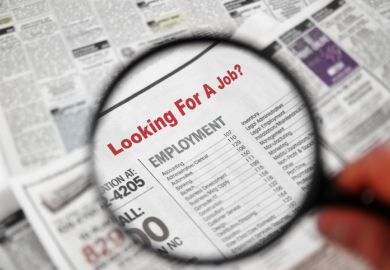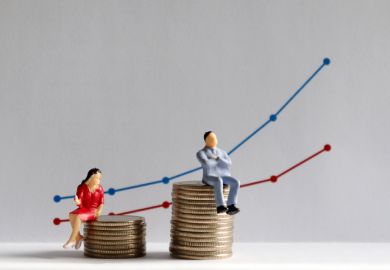Australian graduate incomes rebounded following the global financial crisis of a decade ago, suggesting that the pandemic’s impacts on students’ earning capacity may also be mild.
A new report paints an upbeat picture of the prospects awaiting post-Covid graduates, finding that the disruptive effects of the crisis are likely to be short-lived.
The analysis, based on tax data rather than the survey responses that usually underpin graduate earnings reports, found that a post-2008 downturn in people’s employment and incomes immediately after graduation had eroded over six to eight years.
“If the experience of different cohorts of graduates following the [global financial crisis] is any guide, the effect of delayed entry to the labour market – while unwanted and unwelcome – may be transitory, as graduates do appear to settle into the labour market given additional time,” says the report, by the Department of Education, Skills and Employment.
The findings counter fears of a pandemic-induced “scarring effect” on people’s careers, as the inability to obtain good jobs immediately after graduation undermines their prospects of securing better work down the line, setting them up for long-term underachievement.
Australian National University policy expert Andrew Norton said the findings were encouraging. “Over time there’s faster growth in the salaries of those who’ve graduated into bad labour markets, so that at the six- to eight-year point they’re looking similar to the cohort who didn’t have that negative experience,” he said.
Professor Norton said that on current indications, the pandemic’s impacts would be fairly minor. “The Covid downturn is not nearly as bad as we thought it would be,” he said. “People finishing [university] at the end of this year will probably do quite well, [although] there might be a bit of catch-up for the people who were looking for work in the second half of last year.”
Universities Australia chief executive Catriona Jackson said the findings attested to the employment and income benefits of university education, especially during times of uncertainty.
“From Australian Bureau of Statistics data, we already know university graduates experience better employment outcomes compared to non-graduates,” she said. “This analysis further demonstrates how a university qualification proves to be an important safety net during periods of economic uncertainty.”
The analysis found that nursing and teaching delivered some of the highest initial graduate incomes. But nine years out from graduation, fields such as information technology, business and management were producing better earnings.
The report’s use of fine-grained tax data yielded some surprises, including the finding that women’s immediate graduate earnings had overtaken those of men in 2015 – although men still earned more in the long term. Women’s short-term pay advantage reflected the high proportion of female students in nursing and teaching.
The analysis also found that graduates from low socio-economic backgrounds tended to out-earn their more well-heeled peers immediately after graduation – although, again, this advantage was reversed over time.
Professor Norton said people from disadvantaged neighbourhoods often delayed their tertiary studies, accumulating time in the workforce before entering university, and this experience translated to higher starting salaries when they began their graduate careers.
Register to continue
Why register?
- Registration is free and only takes a moment
- Once registered, you can read 3 articles a month
- Sign up for our newsletter
Subscribe
Or subscribe for unlimited access to:
- Unlimited access to news, views, insights & reviews
- Digital editions
- Digital access to THE’s university and college rankings analysis
Already registered or a current subscriber?










